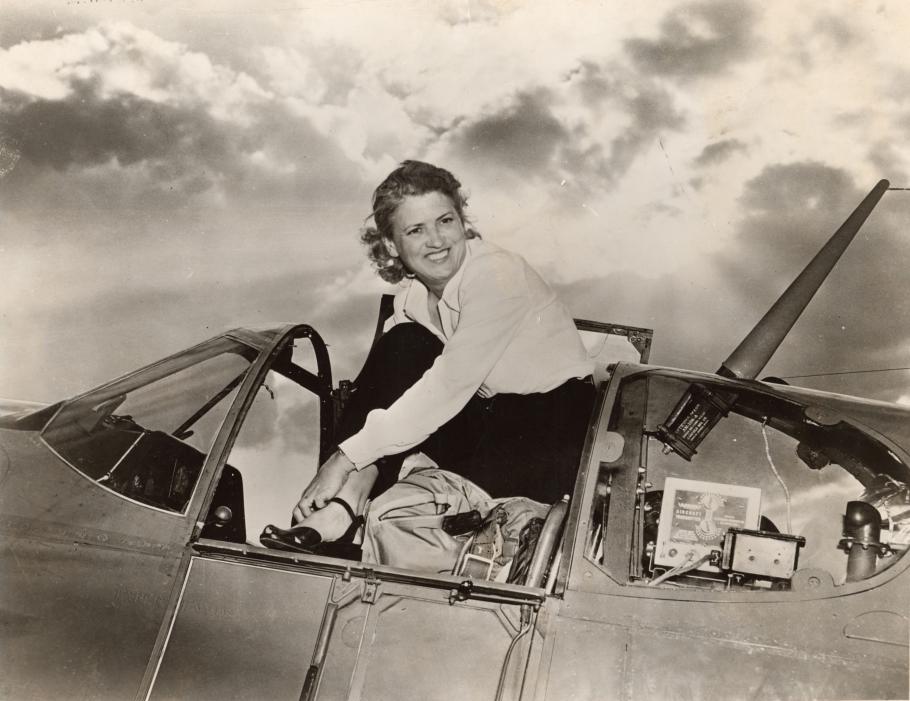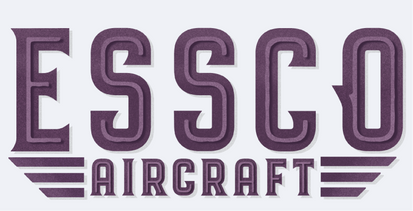
Aviation Appreciation Friday! - Jacqueline Cochran
First Woman to Break the Sound Barrier & Aviation Pioneer
Early Life:
Jacqueline Cochran, born Bessie Lee Pittman in the Florida Panhandle, was the youngest of five children in a working-class family. Her father, Ira Pittman, was a millwright, frequently moving the family for work. In 1920, she married Robert Cochran and had a son, who tragically died at the age of five. After the marriage ended, she retained the name Cochran and began using "Jacqueline" or "Jackie" as her first name. Determined to make a better life for herself, she became a hairdresser and eventually moved to New York City, where her beauty and drive helped her secure a job at Saks Fifth Avenue.

Photo Credit: metropolitanmagazine.it
Aviation Career & WWII Role:
Known for her trailblazing aviation career, Cochran was one of only three women to compete in the 1934 MacRobertson Air Race and, in 1937, became the only woman to compete in the Bendix Race. That year, she set a women’s world speed record and by 1938 was considered the top female pilot in the U.S., having set transcontinental speed and altitude records. She also became the first woman to fly a bomber across the Atlantic and won five Harmon Trophies, earning the nickname "Speed Queen".
Cochran was a key member of the Ninety Nines, a group of female pilots. She served as president of the group from 1941 to 1943. She played a pivotal role in ensuring women pilots could participate in the Civil Air Patrol and the Women Airforce Service Pilots (WASP) program during WWII. Through her editorials, she encouraged women pilots to support the war effort by joining these organizations.
Before the U.S. entered WWII, Cochran flew bombers to Britain as part of the “Wings for Britain” initiative, later volunteering for the British Air Transport Auxiliary (ATA), where she recruited American women pilots. She became the first woman to fly a bomber across the Atlantic and earned the rank of Flight Captain.
In 1939, Cochran proposed the creation of a women’s flying division in the Army Air Forces to Eleanor Roosevelt. This proposal led to her recruitment of women pilots for the WASP program, which was officially sanctioned in 1943. Cochran's efforts led to the training of hundreds of women pilots who flew military aircraft in non-combat roles during WWII.
For her leadership and contributions during the war, Cochran was awarded the Distinguished Service Medal in 1945, becoming the first female civilian to receive this high honor. She continued to set aviation records and remained a significant advocate for women in aviation throughout her life.
Post War & Breaking the Sound Barrier:
At the end of World War II, Jacqueline Cochran transitioned into journalism, being hired by a magazine to cover global postwar events. In this capacity, she witnessed pivotal moments such as Japanese General Tomoyuki Yamashita's surrender in the Philippines and became the first non-Japanese woman to enter Japan after the war. Cochran also attended the Nuremberg Trials in Germany, further expanding her influence beyond aviation.
In 1948, Cochran joined the U.S. Air Force Reserve as a lieutenant colonel and was later promoted to colonel in 1969 before retiring in 1970. She is believed to be one of the first women pilots in the U.S. Air Force. During her military career, Cochran earned three Distinguished Flying Cross awards for her achievements from 1947 to 1964, marking her significant contributions to both civilian and military aviation.
After the war, Cochran set her sights on breaking flying records in jet aircraft. In 1953, flying a Canadair Sabre 3 loaned to her by the Royal Canadian Air Force, Cochran set a new speed record of 652.337 mph over 100 km and later became the first woman to break the sound barrier, encouraged by her close friend Chuck Yeager. Cochran continued setting records throughout the 1960s, including altitude records in the Northrop T-38 Talon supersonic trainer.

Photo Credit: gazingskywardmedia.com
Legacy:
Jacqueline Cochran passed away on August 9, 1980, in Indio, California, where she had lived with her husband until his death four years prior. A long-time resident of the Coachella Valley, she is buried in the Coachella Valley Public Cemetery. Throughout her aviation career, Cochran frequently used Thermal Airport, which was later renamed Jacqueline Cochran Regional Airport in her honor. In 1953 and 1954, the Associated Press named her "Woman of the Year in Business." Additionally, she served on the Board of Trustees for George Washington University from 1962 until her death in 1980.
Bibliography:
Encyclopedia Britannica – Jacqueline Cochran
Wikipedia – Jacqueline Cochran
